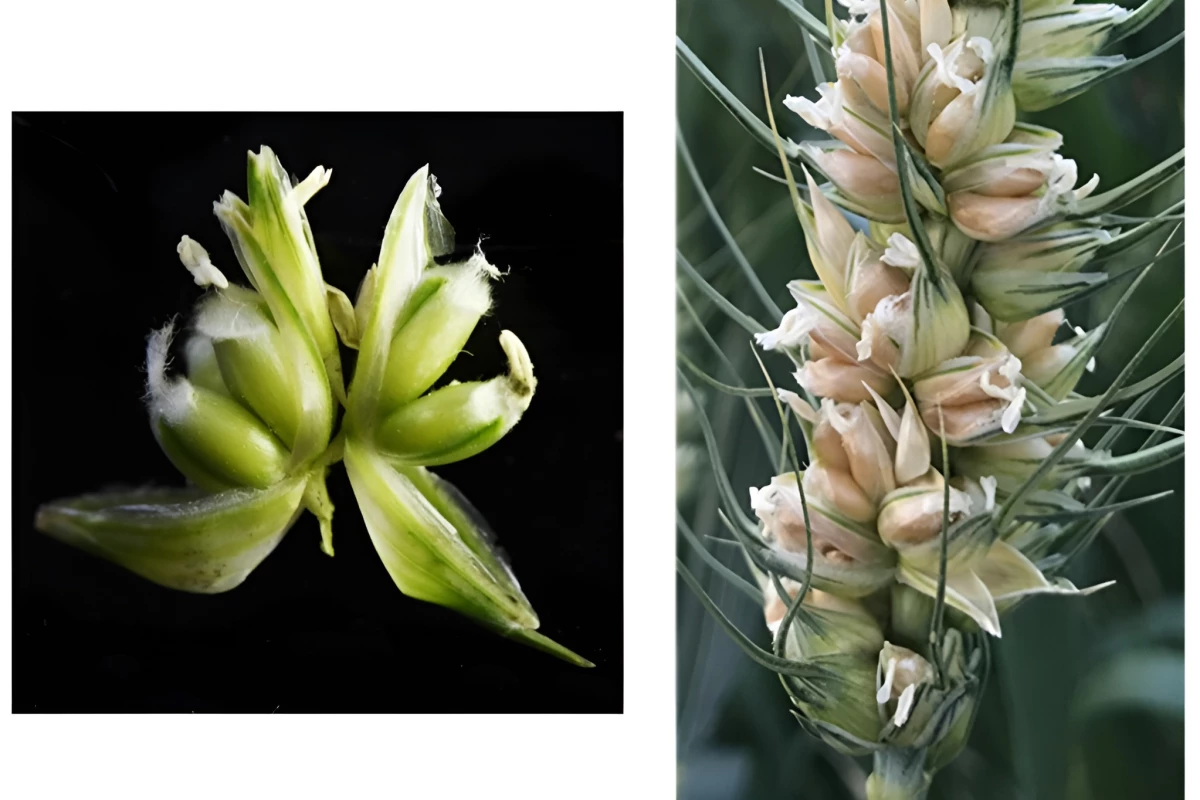A recent genetic breakthrough at the University of Maryland has the potential to triple wheat grain yields by enabling each plant to produce significantly more grains. Researchers have identified a key genetic mechanism that allows certain mutant wheat plants, known as MOV (multi-ovary) wheat, to generate up to three grains per floret instead of the usual single grain.
Traditionally, each floret in a wheat plant’s seed head develops one ovary, leading to one grain. The discovery of the MOV wheat variant, which can produce multiple ovaries per floret, paves the way for enhanced agricultural productivity. The research team meticulously mapped the DNA of MOV wheat and compared it with that of conventional bread wheat to pinpoint the genetic differences responsible for this trait.
The scientists found that a gene called WUSCHEL-D1 (WUS-D1), which is typically dormant, becomes active in MOV wheat. This gene plays a crucial role in the formation of additional female flower parts, including pistils and ovaries. By activating WUS-D1 in cultivated wheat varieties, it may be possible to significantly increase grain production.
Implications for Wheat Breeding
Associate Professor Vijay Tiwari, co-author of the study, emphasized the importance of this discovery: “Pinpointing the genetic basis of this trait offers a path for breeders to incorporate it into new wheat varieties, potentially increasing the number of grains per spike and overall yield.”
The research findings were published in the Proceedings of the National Academy of Sciences in 2023, highlighting the potential of genetic advancements in addressing food security challenges. With the world’s population projected to reach nearly 10 billion by 2050, enhancing crop yields is essential to meet the increasing demand for food.
By utilizing a gene editing toolkit, the team aims to further refine this trait to boost wheat yields. The ability to harvest more grain from the same land, water, and fertilizer presents a significant opportunity for sustainable agriculture.
As the agricultural sector grapples with the effects of climate change and growing populations, innovations like these could transform food production practices globally. The ongoing research may lead to the development of new wheat varieties that not only improve yields but also contribute to more efficient resource use in farming.







































































